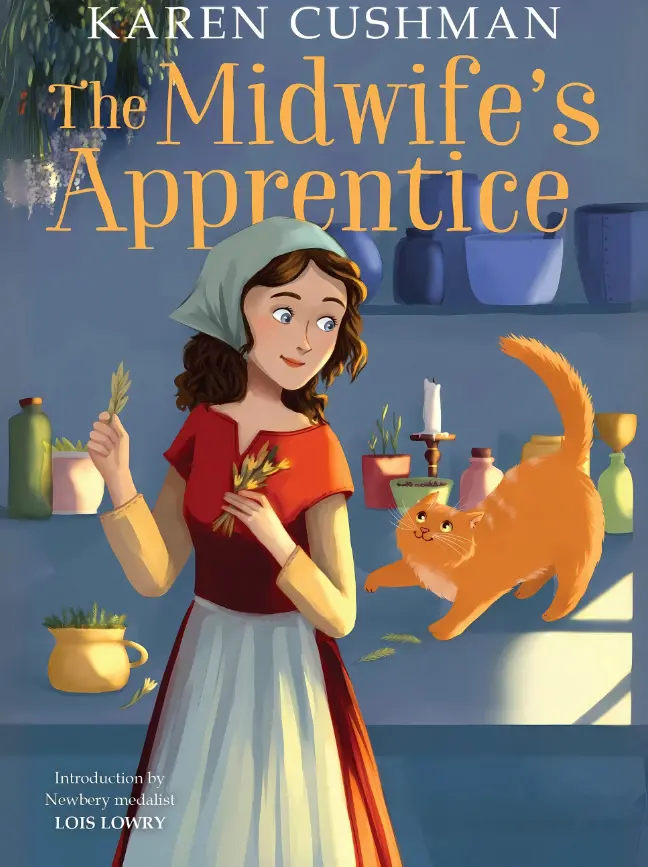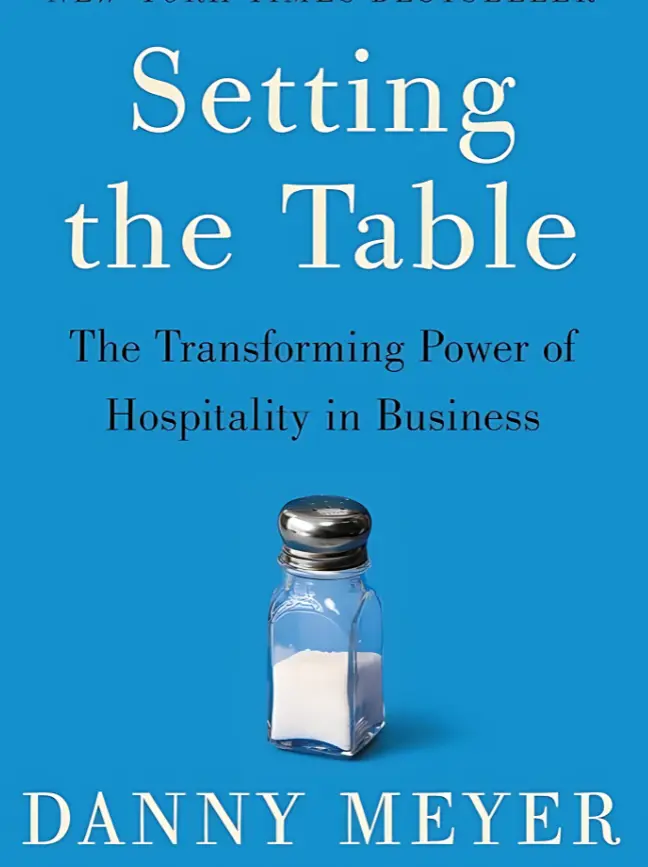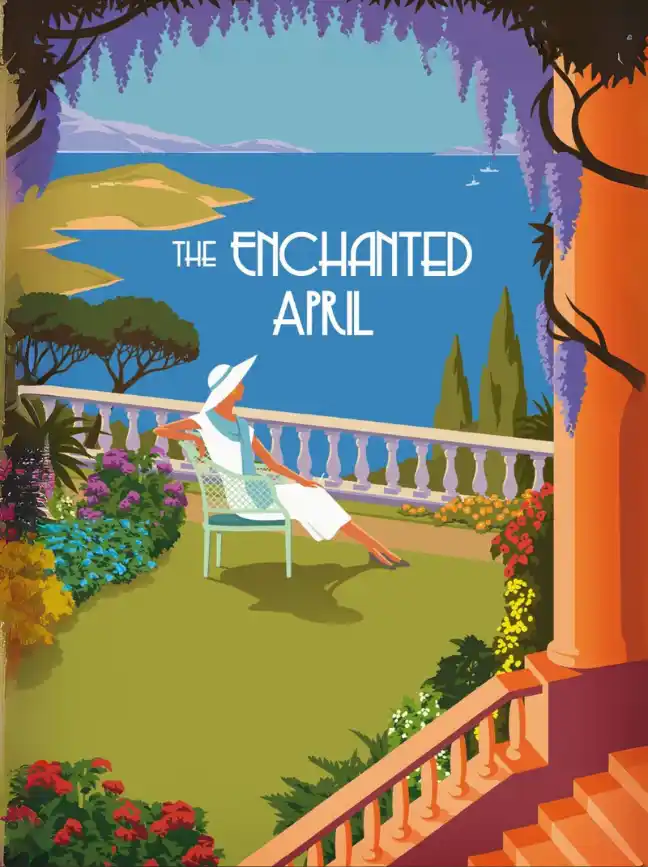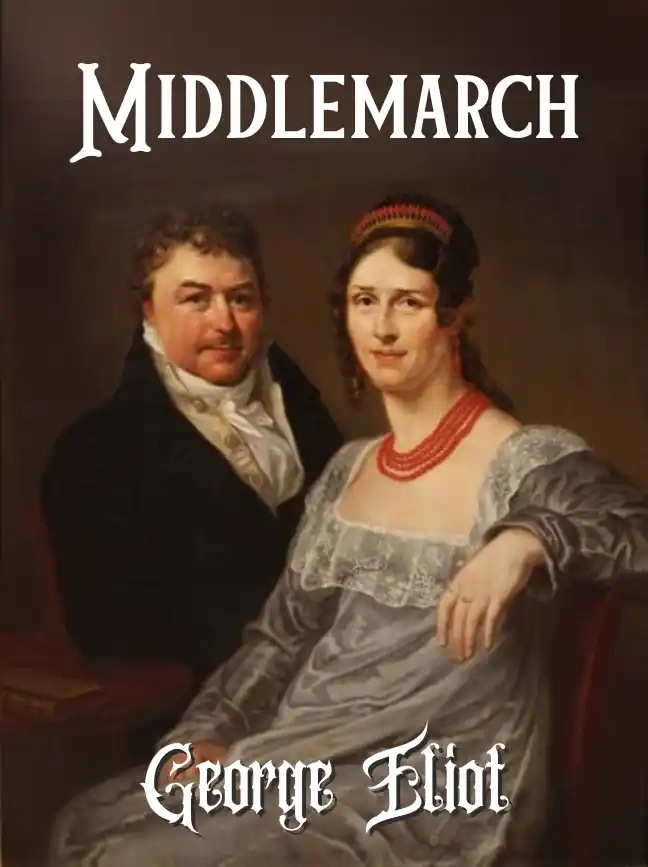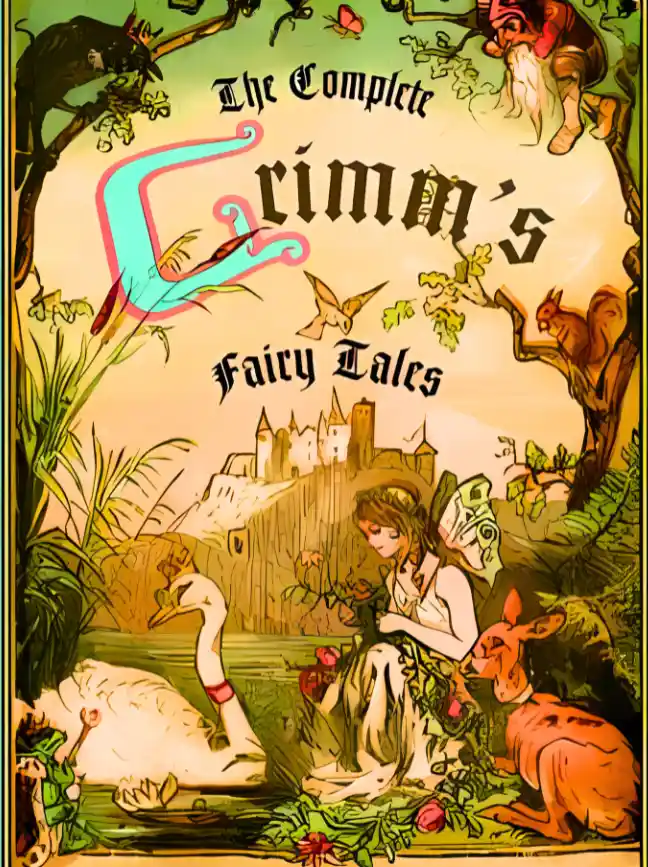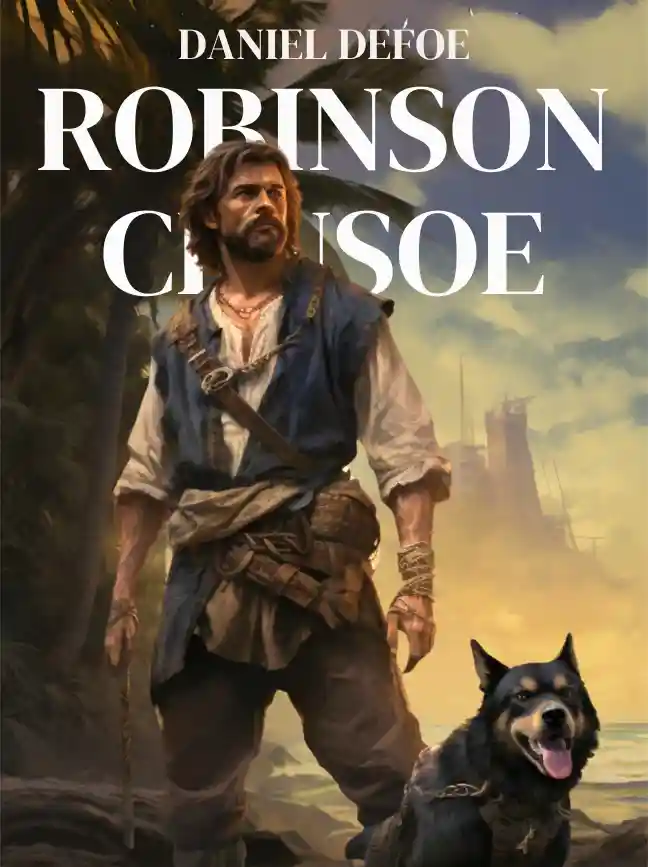Florence came back for her promptly at seven with an oil lamp in her hand to light the way. They went down the stairs to a dining room weighed down by a monstrous chandelier, much like the one in the hallway entrance, which remained unlit. There was a table big enough for a dozen people, with the appropriate tablecloth of white damask. Candelabra had been set on it. The long, white, tapered candles reminded Noemí of church.
The walls were lined with china cabinets crammed with lace, porcelain, and most of all with silver. Cups and plates bearing the proud initial of their owners—the triumphant, stylized D of the Doyles—serving trays and empty vases, which might have once gleamed under the glow of the candles and now looked tarnished and dull.
Florence pointed to a chair, and Noemí sat down. Francis was already seated across from her and Florence took her place at his side. A gray-haired maid walked in and placed bowls filled with a watery soup in front of them. Florence and Francis began to eat.
“Will no one else be joining us?” she asked.
“Your cousin is asleep. Uncle Howard and Cousin Virgil may come down, perhaps later,” Florence said.
Noemí arranged a napkin on her lap. She had soup, but only a little. She was not used to eating at this hour. Nights were no time for heavy meals; at home they had pastries and coffee with milk. She wondered how she’d fare with a different schedule. À l’anglaise, like their French teacher used to say. La panure à l’anglaise, repeat after me. Would they have four o’clock tea, or was it five o’clock?
The plates were taken away in silence, and in silence there came the main dish, chicken in an unappealing creamy white sauce with mushrooms. The wine they’d poured her was very dark and sweet. She didn’t like it.
Noemí pushed the mushrooms around her plate with her fork while trying to see what lay in the gloomy cabinets across from her.
“It’s mostly silver objects in here, isn’t it?” she said. “Did all of these come from your mine?”
Francis nodded. “Yes, back in the day.” “Why did it close?”
“There were strikes and then—” Francis began to say, but his mother immediately raised her head and stared at Noemí.
“We do not talk during dinner.”
“Not even to say ‘pass the salt’?” Noemí asked lightly, twirling her fork.
“I can see you think yourself terribly amusing. We do not talk during dinner. That is the way it is. We appreciate the silence in this house.”
“Come, Florence, surely we can make a bit of conversation. For the sake of our guest,” said a man in a dark suit as he walked into the room, leaning on Virgil.
Old would have been an inaccurate word to describe him. He was ancient, his face gouged with wrinkles, a few sparse hairs stubbornly attached to his skull. He was very pale too, like an underground creature. A slug, perhaps. His veins contrasted with his pallor, thin, spidery lines of purple and blue.
Noemí watched him shuffle toward the head of the table and sit down. Virgil sat too, by his father’s right, his chair at such an angle that he remained half enveloped in shadows.
The maid didn’t bring a plate for the old man, only a glass of dark wine. Maybe he’d already eaten and had ventured downstairs for her sake.
“Sir, I’m Noemí Taboada. It’s nice to meet you,” she said.
“And I am Howard Doyle, Virgil’s father. Although you’ve guessed that already.”
The old man wore an old-fashioned cravat, his neck hidden under a mound of fabric, a circular silver pin upon it as a decoration, a large amber ring on his index finger. He fixed his eyes on her. The rest of him was bleached of color, but the eyes were of a startling blue, unimpeded by cataracts and undimmed by age. The eyes burned coldly in that ancient face and commanded her attention, vivisecting the young woman with his gaze.
“You are much darker than your cousin, Miss Taboada,” Howard said after he had completed his examination of her.
“Pardon me?” she asked, thinking she’d heard him wrong.
He pointed at her. “Both your coloration and your hair. They are much darker than Catalina’s. I imagine they reflect your Indian heritage rather than the French. You do have some Indian in you, no? Like most of the mestizos here do.”
“Catalina’s mother was from France. My father is from Veracruz and my mother from Oaxaca. We are Mazatec on her side. What is your point?” she asked flatly.
The old man smiled. A closed smile, no teeth. She could picture his teeth, yellowed and broken.
Virgil had motioned to the maid, and a glass of wine was placed before him. The others had resumed their silent eating. This was to be, then, a conversation between two parties.
“Merely an observation. Now tell me, Miss Taboada, do you believe as Mr. Vasconcelos does that it is the obligation, no, the destiny, of the people of Mexico to forge a new race that encompasses all races? A ‘cosmic’ race? A bronze race? This despite the research of Davenport and Steggerda?”
“You mean their work in Jamaica?”
“Splendid, Catalina was correct. You do have an interest in anthropology.”
“Yes,” she said. She did not wish to share more than that single word.
“What are your thoughts on the intermingling of superior and inferior types?” he asked, ignoring her discomfort.
Noemí felt the eyes of all the family members on her. Her presence was a novelty and an alteration to their patterns. An organism introduced into a sterile environment. They waited to hear what she revealed and to analyze her words. Well, let them see that she could keep her cool.
She had experience dealing with irritating men. They did not fluster her. She had learned, by navigating cocktail parties and meals at restaurants, that showing any kind of reaction to their crude remarks emboldened them.
“I once read a paper by Gamio in which he said that harsh natural selection has allowed the indigenous people of this continent to survive, and Europeans would benefit from intermingling with them,” she said, touching her fork and feeling the cold metal under her fingertips. “It turns the whole superior and inferior idea around, doesn’t it?” she asked, the question sounding innocent and yet a little bit mordant.
The elder Doyle seemed pleased with this answer, his face growing animated. “Do not be upset with me, Miss Taboada. I do not mean to insult you. Your countryman, Vasconcelos, he speaks of the mysteries of ‘aesthetic taste’ which will help shape this bronze race, and I think you are a good example of that sort.”
“Of what sort?”
He smiled again, this time his teeth visible, the lips drawn. The teeth were not yellow as she’d imagined, but porcelain-white and whole. But the gums, which she could see clearly, were a noxious shade of purple.
“Of a new beauty, Miss Taboada. Mr. Vasoncelos makes it very clear that the unattractive will not procreate. Beauty attracts beauty and begets beauty. It is a means of selection. You see, I am offering you a compliment.”
“That is a very strange compliment,” she managed to say, swallowing her disgust.
“You should take it, Miss Taboada. I don’t hand them out lightly. Now, I am tired. I will retire, but do not doubt this has been an invigorating conversation. Francis, help me up.”
The younger man assisted the waxwork and they left the room. Florence drank from her wine, the slim stem carefully lifted and pressed against her lips. The oppressive silence had settled upon them again. Noemí thought that if she paid attention, she would be able to hear everyone’s hearts beating.
She wondered how Catalina could bear living in this place. Catalina had always been so sweet, always the nurturer watching over the younger ones, a smile on her lips. Did they really make her sit at this table in utter silence, the curtains drawn, the candles offering their meager light? Did that old man try to engage her in obnoxious conversations? Had Catalina ever been reduced to tears? At their dining room table in Mexico City her father liked to tell riddles and offer prizes to the child who piped up with the correct answer.
The maid came by to take away the dishes. Virgil, who had not properly acknowledged Noemí, finally looked at her, their eyes meeting. “I imagine you have questions for me.”
“Yes,” she said.
“Let’s go to the sitting room.”
He grabbed one of the silver candelabra on the table and walked her down a hallway and into a large chamber with an equally enormous fireplace and a black walnut mantel carved with the shapes of flowers. Above the fireplace hung a still life of fruits, roses, and delicate vines. A couple of kerosene lamps atop twin ebony tables provided further illumination.
Two matching faded green velour settees were arranged at one end of the room, and next to them there were three chairs covered with antimacassars. White vases collected dust, indicating that this space had once been used to receive visitors and supply merriment.
Virgil opened the doors of a sideboard with silver hinges and a marble serving surface. He took out a decanter with a curious
stopper shaped like a flower and filled two glasses, handing her one. Then he sat on one of the stately, stiff, gold brocade armchairs set by the fireplace. She followed suit.
Since this room was well illuminated, she was presented with a better picture of the man. They had met during Catalina’s wedding, but it had all been very quick and a year had passed. She had not been able to recall what he looked like. He was fair-haired, blue-eyed like his father, and his coolly sculpted face was burnished with imperiousness. His double-breasted lounge suit was sleek, charcoal gray with a herringbone pattern, very proper, though he’d eschewed a tie, and the top button of his shirt was undone as if he were trying to imitate a casualness it was impossible for him to possess.
She was not sure how she should address him. Boys her age were easy to flatter. But he was older than she was. She must be more serious, temper her natural flirtatiousness lest he think her silly. He had the stamp of authority here, but she also had authority. She was an envoy.
The Kublai Khan sent messengers across his realm who carried a stone with his seal, and whoever mistreated a messenger would be put to death. Catalina had told her this story, narrating fables and history for Noemí.
Let Virgil understand, then, that Noemí had an invisible stone in her pocket.
“It was good of you to come on such short notice,” Virgil said, though his tone was flat. Courtesy, but no warmth.
“I had to.”
“Did you really?”
“My father was concerned,” she said. There was her stone, even as his own badge was all around him, in this house and its things. Noemí was a Taboada, sent by Leocadio Taboada himself.
“As I tried to tell him, there is no need for alarm.”
“Catalina said she had tuberculosis. But I don’t think that quite explains her letter.”
“Did you see the letter? What did it say exactly?” he asked, leaning forward. His tone was still flat, but he looked alert.
“I did not consign it to memory. Enough that he asked me to visit you.”
“I see.”
He turned his glass between his hands, the fire making it glint and sparkle. He leaned back against the chair. He was handsome. Like a sculpture. His face, rather than skin and bone, might have been a death mask.
“Catalina was not well. She ran a very high fever. She sent that letter in the midst of her sickness.”
“Who is treating her?” “Pardon me?” he replied.
“Someone must be treating her. Florence, is she your cousin?” “Yes.”
“Well, your cousin Florence gives her medicine. There must be a doctor.”
He stood up and grabbed a fireplace poker, stirring the burning logs. A spark flew through the air and landed on a tile dirty with age, a crack running down its middle.
“There is a doctor. His name is Arthur Cummins. He has been our physician for many years. We completely trust Dr. Cummins.”
“Doesn’t he think her behavior has been unusual, even with tuberculosis?”
Virgil smirked. “Unusual. You have medical knowledge?”
“No. But my father did not send me here because he thought everything was as usual.”
“No, your father wrote about psychiatrists at the first possible opportunity. It’s the thing he writes about, over and over again,” Virgil said scornfully. It irritated her to hear him speaking in such a way about her father, as though he were terrible and unfair.
“I will speak to Catalina’s doctor,” Noemí replied, perhaps more forcefully than she should have, for at once he returned the poker to
its stand with a quick and harsh movement of his arm. “Demanding, are we?”
“I wouldn’t say demanding, exactly. Concerned, more like it,” she replied, taking care to smile, to show him this was really a small matter that might be easily resolved, and it must have worked, for he nodded.
“Arthur comes by every week. He’ll stop by Thursday to see Catalina and my father.”
“Your father is also ill?”
“My father is old. He has the aches that time bestows on all men.
If you can wait until then, you may speak to Arthur.” “I have no intention of leaving yet.”
“Tell me, how long do you expect to remain with us?”
“Not too long, I hope. Enough to figure out if Catalina needs me.
I’m sure I could find lodging in town if I’m too much of a nuisance.”
“It’s a very small town. There’s no hotel, not even a guesthouse. No, you can remain here. I’m not trying to run you out. I wish you’d come for another reason, I suppose.”
She had not thought there would be a hotel, although she would have been glad to discover one. The house was dreary, and so was everyone in it. She could believe a woman could sicken quickly in a place like this.
She sipped her wine. It was the same dark vintage she’d had in the dining room, sweet and strong.
“Is your room satisfactory?” Virgil asked, his tone warming, turning a bit more cordial. She was, perhaps, not his enemy.
“It’s fine. Having no electricity is odd, but I don’t think anyone has died from a lack of light bulbs yet.”
“Catalina thinks the candlelight is romantic.”
Noemí supposed she would. It was the kind of thing she could imagine impressing her cousin: an old house atop a hill, with mist and moonlight, like an etching out of a Gothic novel. Wuthering Heights and Jane Eyre, those were Catalina’s sort of books. Moors
and spiderwebs. Castles too, and wicked stepmothers who force princesses to eat poisoned apples, dark fairies cursing maidens and wizards who turn handsome lords into beasts. Noemí preferred to jump from party to party on a weekend and drive a convertible.
So maybe, in the end, this house suited Catalina fine. Could it be it had been a bit of a fever? Noemí held her glass between her hands, running her thumb down its side.
“Let me pour you another glass,” Virgil said, playing the role of the attentive host.
It could grow on you, this drink. Already it had lulled her into a half sleep, and she blinked when he spoke. His hand brushed hers as he made a gesture to refill her glass, but she shook her head. She knew her limits, traced them firmly.
“No, thanks,” she said, setting the glass aside and rising from the chair, which had proven more comfortable than she might have guessed.
“I shall insist.”
She shook her head prettily, defusing the denial with that tried and proven trick. “Heavens, no. I will decline and wrap myself in a blanket and go to bed.”
His face was still remote, yet now seemed infused with more vitality as he surveyed her very carefully. There was a spark in his eye. He’d found an item of interest; one of her gestures or words struck him as novel. She thought it was her refusal that amused him. He was, likely, not used to being refused. But then, many men were the same.
“I can walk you to your room,” he offered, smooth and gallant.
They went up the stairs, him holding an oil lamp hand-painted with patterns of vines, which made the light emanating from it turn emerald and infused the walls with a strange hue: it painted the velvet curtains green. In one or other of her stories Catalina had told her the Kublai Khan executed his enemies by smothering them with velvet pillows so there would be no blood. She thought this house, with all its fabrics and rugs and tassels, could smother a whole army.


